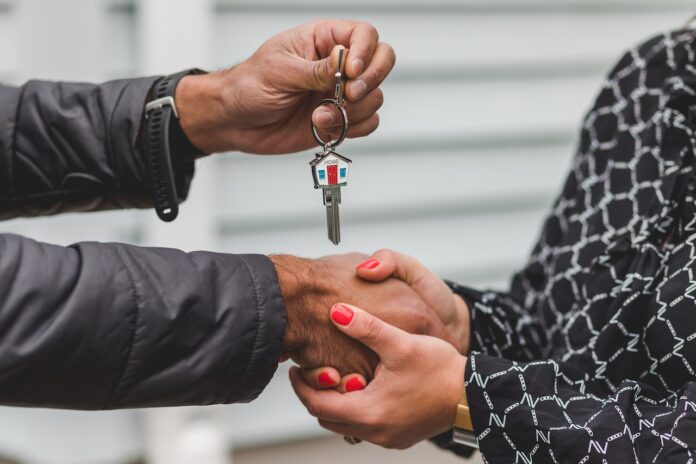
Both renting a house and owning a house come with their own burdens. It’s difficult to choose which one is the most financially responsible decision for you and your family. Rent-to-own homes might be that perfect middle ground you’re looking for!
Owning a house is a huge financial responsibility. Depending on your situation, you might not be ready to take that on. Maybe because of this, you’ve considered renting instead.
The frustrating thing about renting is that you are paying money that you won’t get back. Each month you pay a sum of money that will never return to your wallet, unlike owning a house.
There’s no more need to go back and forth between these two decisions. There is another option that utilizes the benefits of both!
Here’s your ultimate guide to navigating rent-to-own homes.
Renting vs. Owning- Pros & Cons
You won’t be surprised to hear that buying a home takes a lot of money. If you’re like most people, you will need to finance the cost of the house.
One major stumbling block to financing a house is that you need a good credit score in order to do it, You also need a decent-sized down payment to pay upfront. This can be challenging if you’re short on money and the market isn’t giving you any mercy.
In this case, homeownership might be out of the question for you. Your next option is figuring out what it looks like to rent a home.
However, renting has its problems too. You can’t get any tax benefits from having your home, which is a huge bummer. You also can’t build any equity on that home, no matter how long you rent it.
If you rent, you can’t make changes to your house- so forget those home renovations you’ve been dreaming of. You also could be subject to upped prices by your landlord at any point in time.
Overall, both buying and renting have a lot of great qualities, but a lot of undesirable qualities as well. After considering the cons of both options, it may be time for you to look into rent-to-own homes.
What is a rent-to-own home?
A rent-to-own home is a home that you begin paying rent on with the intent to eventually buy. This is the only kind of rent that allows you to get somewhat of a return on everything you poured into it.
When you go to sign your renter’s agreement, you agree to a specific clause so that allows your rent money to contribute to eventually buying the house. This clause basically states that you can or must buy the house after a certain period of time.
This typically costs a bit more than typical rent. However, instead of your rent money having no return, you can use some of that money as a down payment. Seems like a pretty great middle ground, huh?
And in the end, if you decide you want to move somewhere else, no stress. You’ve only lost that extra portion that you’ve paid as the down payment rather than a mortgage on a house.
Why is renting-to-own beneficial?
There are benefits to renting, owning, and renting-to-own. It all just depends on what you need in your current season of life. Let’s discuss the benefits of a rent-to-own plan to determine if it’s the right fit for you:
You can accumulate money for a down payment.
When you rent-to-own, it makes it much easier to have money for a down payment. Because a portion of your rent is going towards your down payment on the house, there’s no need to worry about saving up for it separately.
Your plan is to eventually purchase the house, so you can know your rent money isn’t going down the drain. Although that house isn’t yours, you can know that you’ll get a return on that money soon.
You can still reap the benefits of renting.
One of the great benefits of renting is having someone else fix the broken things in your house. Since a rental house isn’t technically your house, it’s the landlord’s responsibility to fix it.
This means when a pipe bursts, the A/C goes out, or any other laundry list of typical home issues happen, you’re not responsible for fixing it! At least until the home becomes yours.
If you think about it, those paid-off repair bills might be worth the slightly higher rent costs every month. Although, this depends on the deal with your landlord since it’ll look slightly different than your typical renting situation.
What to Look Out For
As you read already, there are plenty of benefits to this method of home-buying. However, there are a few negative sides you should consider as you step into this decision.
You will probably pay more for rent.
Although there’s good reason for you to pay those extra rent costs, it may hurt your wallet a bit. Keep these extra costs in mind so you can see if renting-to-own is even feasible for you.
Plus, it’s important to consider the money you’d be losing if you decide not to buy the house. All that money you’re putting toward your down payment will be gone. That would be more of a loss than your typical rent agreement, so make sure there’s a good chance of you settling into the house longterm!
It’s up to you!
Whether you decide to go the route of renting-to-own or not, the decision is yours. Make sure you weigh the pros and cons of all your options. Who knows, looking into rent-to-own homes might be exactly what you need for your next step!
For more home-ownership tips, check out our article How To Qualify For The Home You Want.


















